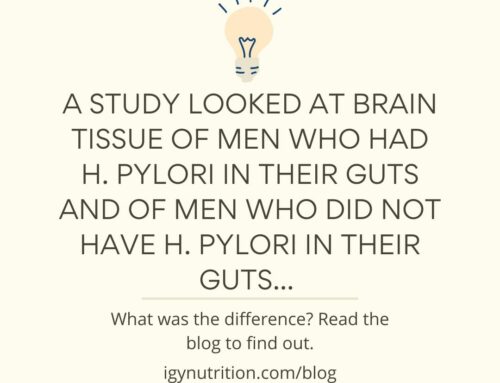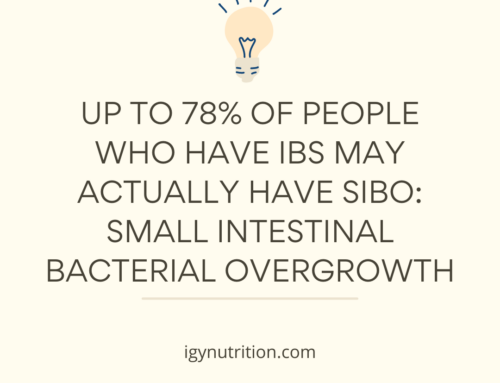Ever wonder what the gut microbiome looks like in people with gastrointestinal diseases like Crohn’s, ulcerative colitis, and colon cancer? Today, we have some results for you.
A gut microbiome study that came out in 2021 looked at how diet can affect the gut microbiomes of people with gastrointestinal diseases – and thereby affect their symptoms. They also looked at which foods increased and decreased the risk of developing the diseases. Let’s take a look at some of the dietary interventions that were shown to help.
Quick Recap: What is the Gut Microbiome, and What is Dysbiosis?
You might already know a bit of microbiome science, but here’s a quick recap.
The microbiome is an ecosystem of millions of microbes – like bacteria, yeasts, and even fungi – living within or on the human body. The term “gut microbiome” refers to the microbes inhabiting the GI tract.
At first glance, microbes living in the body might sound pretty gross – but it turns out they’re necessary for our survival. Many of the microorganisms living within us benefit our bodies by regulating our metabolism, helping us absorb vitamins from food, supporting our immune system, and much more.
The thing is, not all of the microorganisms in our microbiomes are helpful. Some are harmful. These harmful microbes can damage the gut barrier, increase inflammation, and wreak havoc on our metabolisms, hormone production, immune systems, and mental health.
Plus, they can cause uncomfortable digestive issues like gas, bloating, and stool irregularity – no fun.
To minimize the gut damage and annoying symptoms the harmful microbes cause and maximize the benefits helpful microbes confer, we want many beneficial microbes and very few harmful microbes to live in our guts.
There are typically too many harmful microbes and not enough helpful microbes in an unhealthy microbiome. This state of imbalance is called dysbiosis.
Many scientists argue that dysbiosis, an imbalanced gut microbiome, is likely the culprit of most digestive health issues in America.
Check out our blog titled “Is My Microbiome Imbalanced” to find out whether you might have dysbiosis.
To overcome dysbiosis, you’ll want to:
- Eliminate the harmful pathogens living in your gut microbiome
- Keep the helpful microbes already living in your gut microbiome
- Increase populations of helpful microbes living in your gut microbiome
You might already be familiar with strategies for keeping and increasing populations of helpful microbes in your gut microbiome, like:
- Consuming probiotics
- Eating fiber
- Eating fermented food
- Exercising
- Avoiding hefty doses of antibiotics
The authors of this study looked at which dietary interventions benefitted people with gastrointestinal diseases. Let’s take a look.
Dietary Interventions for Inflammatory Bowel Disease
The authors found that the following foods increased one’s risk for colon cancer:
- Red meat and animal fat
- Excess alcohol
- Sugar-sweetened beverages
But, the following foods decreased the risk of colon cancer:
- Fiber
- Calcium
- Yogurt
- Whole grains
Regarding inflammatory bowel disease generally, the following increased the risk of developing it:
- Soft drinks
- Sucrose rich foods
- Ultra-processed foods
These three decreased the risk of developing inflammatory bowel disease:
- Fiber
- Tea
- Fruits & vegetables
The authors go on to explain which strains of bacteria increased and decreased when following the recommended diets for each condition. Join us in part 2 next week to learn more about what they found!
What do you think about this gut microbiome study? Does it make sense to you? Let us know in the comments below.




